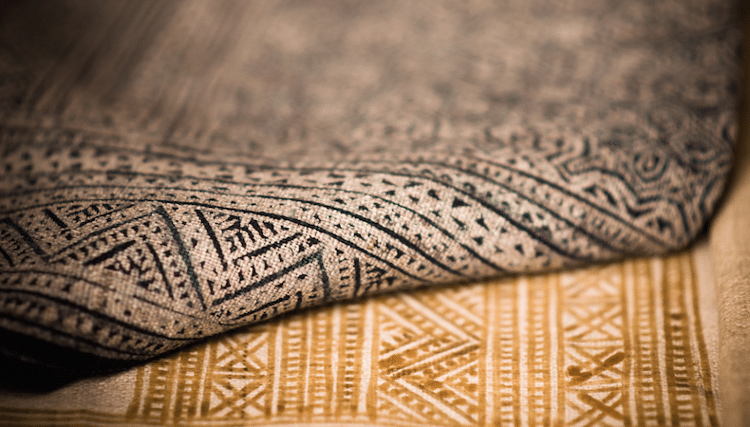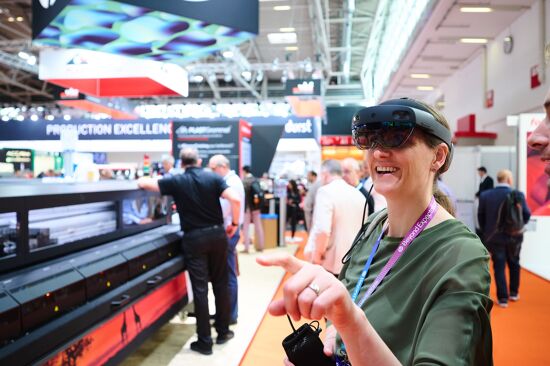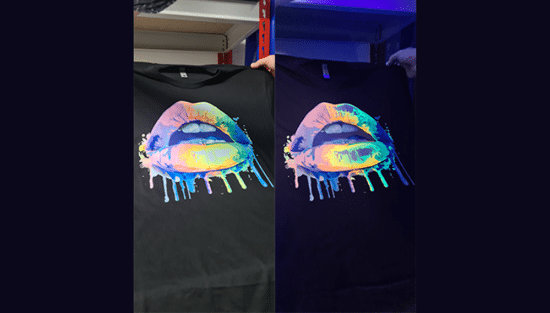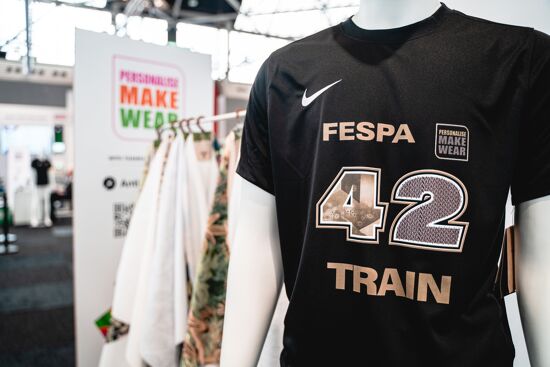Digital technology weaves its way into custom design

New technology aims to allow woven fabrics to be automated and customised, altering the mindset that fabrics can’t be made in custom small batches.
Digital technology has changed just about everything in the worlds of design and commerce, from printing to photography to textiles production. But until now woven—as opposed to surface-printed— fabrics could only be milled at large, inaccessible factories, giving independent designers little control over the fabrics they want for small, one-off projects.
A new technology, developed by Cornell Professor Steve Marschner and Rhode Island School of Design Professor Brooks Hagan, invites users to choose the quality, color and weaves of the fabric they’re designing and set the size of the repeat, which allows for quick iterations.
This dramatically cuts down on the need for sampling, which is a costly and wasteful proposition for independent designers.
“We saw an opportunity to provide a way for anyone to put any design into custom woven fabric. You can log into our web application, upload a design, and see a visual preview of the fabric while you change the weave pattern, yarn colours, etc. – and then when you like it you click print,” said Steve Marschner.
Marschner and Hagan have been working on this technology for a number of years – taking inspiration from Marschner’s research for the digital animation industry and also working with Kavita Bala, professor of computer science, and graduate student Shuang Zhao.
To get such a realistic rendering of the cloth, they scan samples in a 3D nano-CT scanner at the Imaging Facility in Cornell’s Biotechnology Resource Center, which is able to produce volume appearance models with extreme detail. “The tech is now fast and accurate enough for us to shift to a virtual product in an industry where appearance, texture and surface quality are key factors for success,” said Brooks Hagan.
The researchers founded Computational Textiles in 2015 and received a Small Business Innovation Research grant from the National Science Foundation to bring their website called Weft to market this year. Phase one of Weft is now online, enabling customisation of designs available on the site, and by late this year customers will be able to upload their own designs or photographs as well as customise the designs already available on the site.
Future design plans include being able to show the custom fabric on 3D objects like pillows or a chair. The company says it has agreements with several of the largest textile mills in the US to produce the designed-to-order fabric.
“This new technology can generate interest, creative activity, and new business opportunities for this industrial sector. This launch is significant as it represents the first-time digital simulation tools have been applied to an ancient manufacturing platform to create easy access for designers,” said Hagan.
Topics
Interested in joining our community?
Enquire today about joining your local FESPA Association or FESPA Direct
Recent news

Streamlining personalisation with tech: Insights from the SmartHub Conference 2025 speakers
Personalisation Experience 2025 (6 – 9 May 2025, Messe Berlin, Germany) is running its inaugural SmartHub Conference from 6 – 8 May 2025.

Special Effects in DTF: How Neon Inks Are Making Apparel Pop
Neon fluorescent inks are the latest innovation in DTF printing, offering vibrant, eye-catching effects under both daylight and UV light, giving apparel decorators a competitive edge. Testing shows good wash durability, though market perception of added value is still developing. With increasing adoption and ongoing technological advancements, neon represents a significant upgrade for creative customisation.

Unlocking Growth Opportunities in the Printed Personalised Apparel Industry
The printed personalised apparel industry is booming, projected to reach $10.1 billion by 2030. Driven by consumer desire for self-expression and branding needs, technological advancements like DTG/DTF and e-commerce integration are key. Sustainability, eco-friendly materials, and on-demand printing are crucial growth drivers. Businesses leveraging these trends, including AI and social media, have significant commercial potential.

Personalisation: From mass production to print-on-demand
Technological advancements are driving the growing trend of personalisation, fueled by consumer demand for unique products. From packaging campaigns like Share-a-Coke to customised apparel by Nike and Adidas, and AI-powered tools, the shift from mass production to print-on-demand is evident. The SmartHub Conference at the Personalisation Experience from 6 - 8 May will explore these opportunities and challenges for businesses.